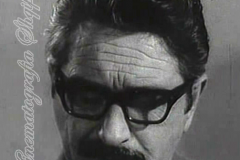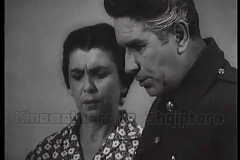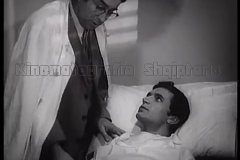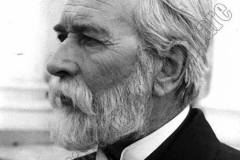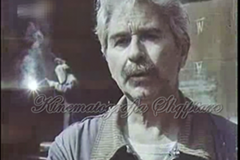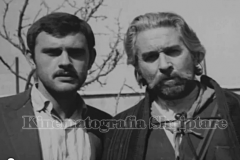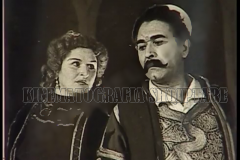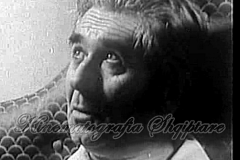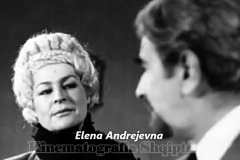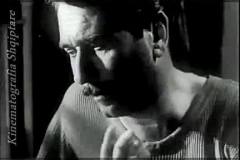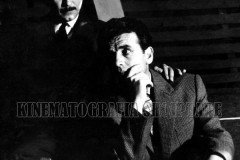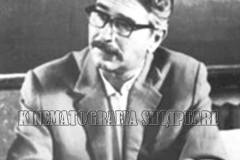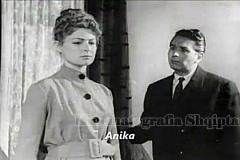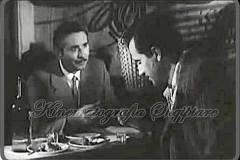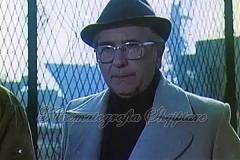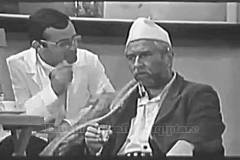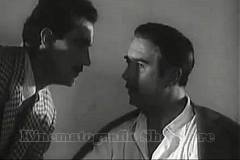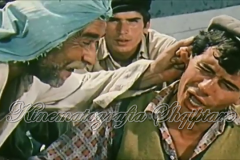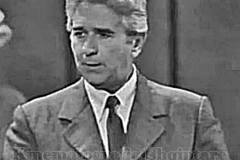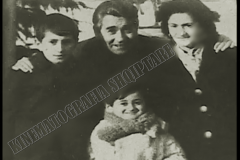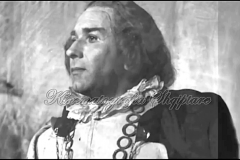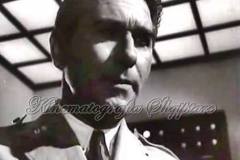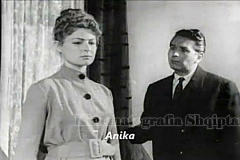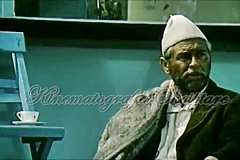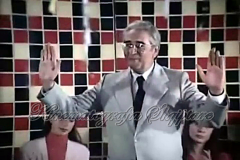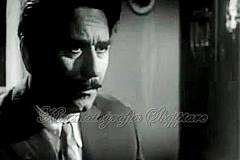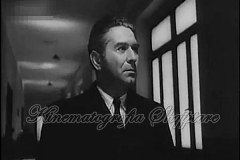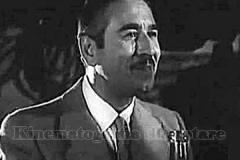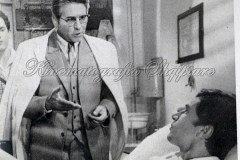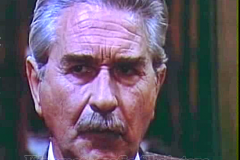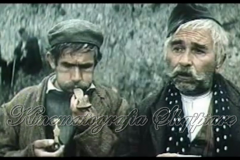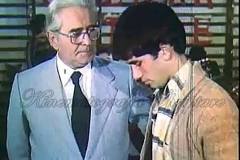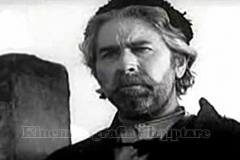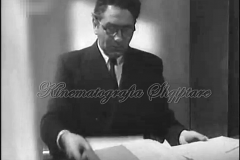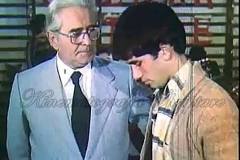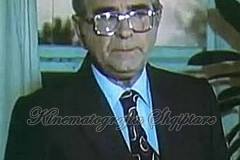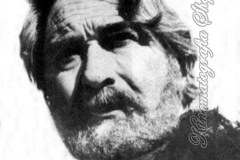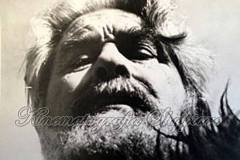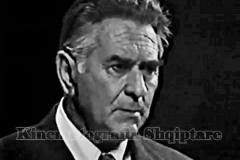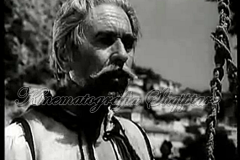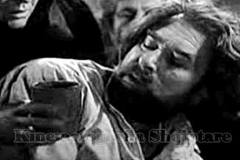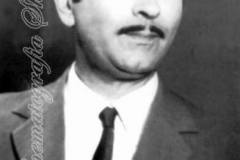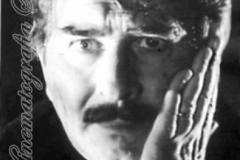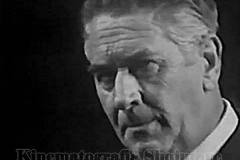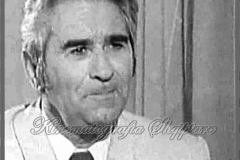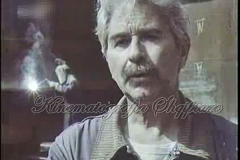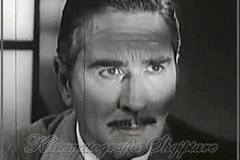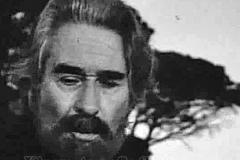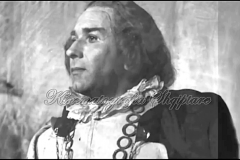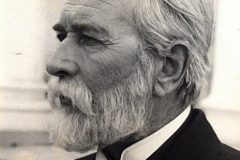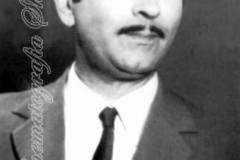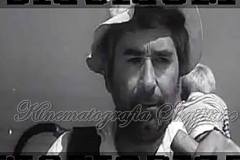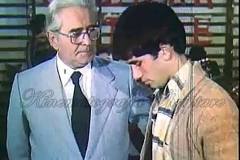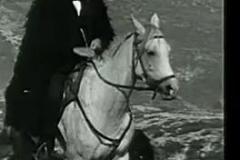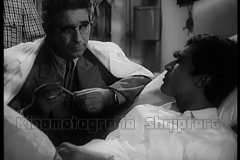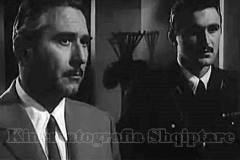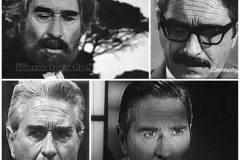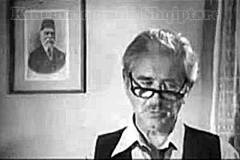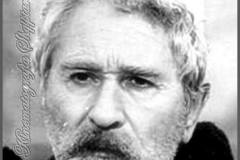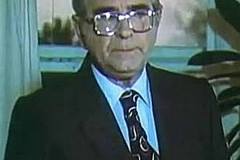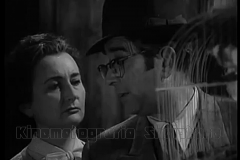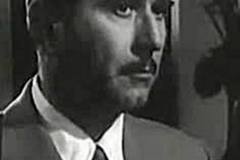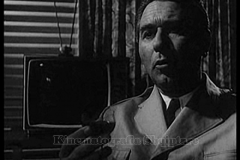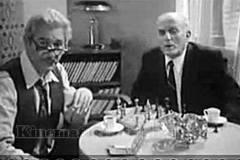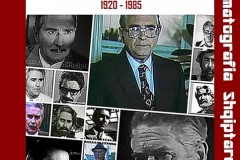“O people, how many things are done in your name, even the greatness speaks in your name. One person can deceive another for a time, you can deceive a people for a time, but you can never deceive an entire people for life “
Sandër Prosi is a complete actor. He acted in about 30 films, where he created such roles that have entered the stable fund of our theater and cinematography. The experience that this actor created and developed during 35 years in the creation of hundreds of roles, together with the experience of other actors of this magnitude, constitute the “University” from which our national school of stage and film interpretation was born and developed, hence the characteristic features of the art of Sander Prosi have attracted the attention of critics and viewers.
He is among those actors whose contributions are associated with the creation of our professional art of stage and screen, as well as with their most notable achievements.
Aleksander Prosi was born in Shkodër, on January 6, 1920.
After finishing primary school, he continued to the high school in Tirana. During high school, in the Gymnasium of Tirana, he prepared and staged Schiller’s drama, “Vilhelm Teli”, which was prevented from being performed by the fascist regime of the time.
Prosi then went to Austria to study dentistry, which he did not finish. In 1947, he participated in the competition near the “Teatri Popullor” and won it. He performed for the first time in 1948 in the comedy “Prefect” by Besim Levonja in the role of Shaqir Aga. Played alongside with actors like Mihal Popi, Loro Kovaci, Marie Logoreci. Then he continued with other roles from national and world dramaturgy.
This is where his wide and varied artistic activity begins.
Prosi created over 85 roles in 75 works by our authors such as AZ Çajupi, K. Jakova, B. Lëvonja, L. Papa, I. Kadare, T. Laço, R. Pulaha, D. Agolli, Dh. Xhuvani and foreign authors such as Shakespeare, Schiller, Chekhov, Karagiale, Gorky, Brecht, etc.
We recall the unrepeatable figures “Fytyra e dyte” the role of Vuksan, Horat in “Hamlet”, Othello in “Othello”, and Miller in “Intrige dhe dashuri” where the figures are not captured in a general, static way but in development as a result of the contradictions that develop in a dramatic work.
They have been studied and will continue to be analyzed further, as they are rich in great national values. As such they occupy an important place in the contribution that our theater and film make to our treasury of progressive culture as well as to that of world-class performance.
Therefore, the film creations of Sandër Prosi reveal not only the artistic values of the actor on the screen, but also his high stage skills.
Prosi finished his studies in dentistry, and was professionally far from dramatic art, but within the artistic pain of man, where this would push him to the stage to penetrate historical and artistic characters and figures, which would highlight his ability to transcend them and to make them part of one’s character.
The noble-looking man would be called from time to time by different names and would leave special impressions on the spectators, bringing before their eyes Abdyl Sharra, the captain of “Diga”, dr. Kristo Borova, “xhaxha” Vrane, Jaho Labi, the professor, Miti Vozari, Sefedin, Dhaskal Todri, Ismail Qemali, prof. Mirushi, colonel John, Bruno, Mark, the general, Pilo Mullixhi, etc.
It was 1961 when he got his first role in the movie. He was the character of the school principal in the movie “Debatik”. This would be the beginning, while he would clearly stand out reflecting the magical impulses of the dramatic art. With his deep gaze, sharp speech, sweet voice, he could not help but show the real Sandri, the natural man who became a great artist.
In the film “The First Years” he impressed the viewer with a clear embodiment of the character of Abdyl, remaining in everyone’s mind for a long time.
Later, he starred in several successful films, “People’s Artist” Sander Prosi in the years 1962-1975 until his death also gave teaching as a lecturer in the drama department at the Academy of Arts.
On March 24, 1985, Sandër Prosi, while filming the movie “Bitter Spring” in the city of Durrës, died suddenly. An enigmatic death that has been talked about with great reserve, as if it touched a truth that had to be postponed in time, and that had to be talked about when the right moment came.
When would this be the right moment? It has always been said quietly that Sandër Prosi killed himself, jumped, that one of his attempts led him to the end. It was said by close colleagues who refused to confirm this in public. In the past, suicides should not be talked about, as if they were an expression of an independent individuality, a personal freedom, dangerous in itself. In general, there were no comments and explanations about them, they just didn’t talk.
The case of Sandër Prosi will be told one day when our culture has professional biographers, who can tell without simulating who Sandër Prosi was as an artist and a man.
On the 25th anniversary of the actor’s death, the President of the Republic honors him with the “Honour of the Nation” Order (posthumously).
The motivation was this:
“As an outstanding personality of the stage and the screen with valuable contributions to the creation and further consolidation of the Albanian theatrical and cinematographic art.”
For his great help in the development of our stage and cinematographic art, he has been honored with the high title of “People’s Artist” with Republic Awards, orders and medals.
The President Topi presented the High Order and the relevant decree as a sign of appreciation to Aristidh Prosi, the actor’s eldest son, soloist of the RTSH Symphony Orchestra.
While commenting on the reasons why Sandër Prosi was given this Order, the President made a retrospective of the beginnings of Albanian theater and cinematography and appreciated the contribution of the constellation of actors and directors of the 40-50s of the 20th century “where he shone with his talent also Sandër Prosi.
The first, the founders, have a characteristic that makes them part of that history that becomes a point of reference for generations, they had great talent, talent like that of Sandër Prosi.”
The contribution of Sandër Prosit is related to a great incentive “for our thinking, for our relationship with beauty, with art, with freedom itself.
He was accurate, true, wise, Albanian to the core, in life and in Art. Isn’t this Othello, which he interpreted so skillfully, where the respect for faith and disdain for infidelity is clearly visible ?
AWARDS AND AWARDS
Sander Prosi, as one of the greatest actors of the Albanian scene, has been honored with several prizes, cups, medals such as and with the prices of the Republic, the series has not received enough from the state.
Thus, in 1975, he was awarded the Republic Award of the First Degree, for the role of Jaho Labi in the film “At the beginning of summer”.
The realization of the figure of Ismail Qemali was impressive, so he was awarded the Fifth Festival Medal and the First-Class Republic Award.
For more than three decades, he created over 80 roles in 75 works by foreign and our authors. But his high class made none of them similar to the other: the straight body, the noble appearance, with a stage glow, the warm look, the plasticity and the strength of his speech, through the special voice, gave this actor the proportions of a great stage artist.
In the theater he has performed in “Cuca e maleve”, “Kremlin Clocks”, “Hamlet”, “The Second Face”, “The Patient Doctor”, “Othello”, “Macbeth”, “The Era Before the Trial”, “The General of the Army Dead”, “The Fisherman’s Family”, “The Rooftop”, “Revizori”, “14 Years Groom”, “The Merry Wives of Windsor”, “Deep Roots”, “Uncle Vanya” etc.
After 1961, other roles belong to cinematographers in the films Debatik, Special Assignment (1963), First Years (1965), Open Horizons (1968), Old Wounds (1968), The Courageous Kids (1970), The Trace (1970), The Bronze Bust (1970), War Mornings (1971), The Stars of the Long Night (1972), Path of War (1973) , “The General of the Dead Army” (1975), “In the Beginning of the Summer” (1976), “The Coping” (1976), “Threads to be cut” (1977), “The Man with the Cannon” (1977), “The Gramophone General ” (1978), “The Path of Letters” (1979), “Stars over the Drin” (1979), “Girls with Red Ribbons” (1980), “Bullets to Emperor” (1980), “Old Man and enemy” (1981) , “Autumn Reproaches” (1981), “Second November” (1982), “Warm Hand” (1983), “Who Dies on Foot” (1984) and “Bitter Spring”, the film directed by Muharrem Fejzo that he left in the middle.
Published for the first time on Facebook Page on March 2013. Reviewed in the following years.
___________________________________
Albanian Cinematography in activity since 2013
Follow us: Blog: https://albaniancinematography.blogspot.com/ Vimeo: Albanian Cinematography (vimeo.com) Facebook: https://www.facebook.com/ksh.faqjazyrtare Dailymotion: https://www.dailymotion.com/kinematografiashqiptareartisporti YouTube: https://www.youtube.com/channel/UCDRYQ5xCyGkfELm3mX8Rhtw
Discover more from Albanian Cinematography - Sport
Subscribe to get the latest posts sent to your email.

